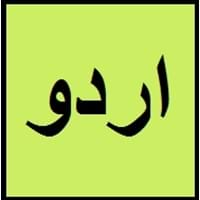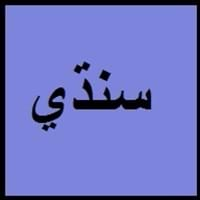Urdu and Sindhi
Countries
India, Pakistan
India, Pakistan
National Language
Pakistan
India, Pakistan, Sindh
Second Language
Pakistan
Not spoken in any of the countries
Speaking Continents
Asia, Oceania
Asia
Minority Language
India
Not spoken in any of the countries
Regulated By
National Council for Promotion of Urdu Language, India, National Language Authority, Pakistan
National Council For Promotion Of Sindhi Language, Sindhi Language Authority
Interesting Facts
- Urdu is a language of beauty and grace, that adds meaning to prose and charm to poetry.
- Different languages such as Arabic, Persian and Turkish gave birth and richness to Urdu.
- The first writings of Sindhi language were found in 8th century CE.
- In Sindhi language, every woord ends in a vowel.
Similar To
Arabic and Hindi Languages
Gujarati
Derived From
Ghaznavid Persian Language
Prakrit Language
Alphabets in
Urdu-Alphabets.jpg#200
Sindhi-Alphabets.jpg#200
Scripts
Arabic
Arabic, Devanagari
Writing Direction
Right-To-Left, Horizontal
Right-To-Left, Horizontal
Language Levels
Not Available
Time Taken to Learn
Not Available
Hello
خوش آمديد
Assalam O Alaikum
Thank You
آپ کا شکریہ
Meharbani
How Are You?
آپ کیسے ہیں؟
Kehra haal aahin
Good Night
گڈ نائٹ
tava kia aayo
Good Evening
سلام علیکم
Sham Jo Salam
Good Afternoon
گڈ آفٹر نون
Assalam o Alaikum
Good Morning
گڈ مارننگ
Subho Bakhair
Please
براہ مہربانی
Mehrbani
Sorry
معاف کرنا
Moon khe afsos aahe
I Love You
مجھے تم سے محبت
Man tokhe prem karyan ti
Excuse Me
معاف کیجئے گا
Maaf Kajo
Dialect 1
Dakhini
Siraiki
Where They Speak
India
Upper Sindh
How Many People Speak
Not Available
Dialect 2
Hyderabadi Urdu
Vicholi
Where They Speak
India
Central Sindh
Where They Speak
South Asia
Lower Sindh
Second Language Speakers
Not Available
Native Name
اُردُو
Not Available
Alternative Names
Bihari
Not Available
French Name
ourdou
sindhi
German Name
Urdu
Sindhi-Sprache
Pronunciation
[ˈʊrd̪u]
Not Available
Ethnicity
Not Available
Not Available
Origin
12th Century CE
711 A.D
Language Family
Indo-European Family
Indo-European Family
Subgroup
Indo-Iranian
Indo-Iranian
Early Forms
No early forms
Not Available
Standard Forms
Modern Standard Urdu
Sindhi
Signed Forms
Signed Urdu
Not Available
Scope
Individual
Individual
ISO 639 6
Not Available
Not Available
Glottocode
urdu1245
sind1272
Linguasphere
59-AAF-q
No data available
Language Type
Living
Living
Language Linguistic Typology
Not Available
Subject-Object-Verb
Language Morphological Typology
Fusional
Not Available
All Urdu and Sindhi Dialects
Most languages have dialects where each dialect differ from other dialect with respect to grammar and vocabulary. Here you will get to know all Urdu and Sindhi dialects. Various dialects of Urdu and Sindhi language differ in their pronunciations and words. Dialects of Urdu are spoken in different Urdu Speaking Countries whereas Sindhi Dialects are spoken in different Sindhi speaking countries. Also the number of people speaking Urdu vs Sindhi Dialects varies from few thousands to many millions. Some of the Urdu dialects include: Dakhini, Hyderabadi Urdu. Sindhi dialects include: Siraiki , Vicholi. Also learn about dialects in South American Languages and North American Languages.
Urdu and Sindhi Speaking population
Urdu and Sindhi speaking population is one of the factors based on which Urdu and Sindhi languages can be compared. The total count of Urdu and Sindhi Speaking population in percentage is also given. The percentage of people speaking Urdu language is 0.99 % whereas the percentage of people speaking Sindhi language is 0.39 %. When we compare the speaking population of any two languages we get to know which of two languages is more popular. Find more details about how many people speak Urdu and Sindhi on Urdu vs Sindhi where you will get native speakers, speaking population in percentage and native names.
Urdu and Sindhi Language Codes
Urdu and Sindhi language codes are used in those applications where using language names are tedious. Urdu and Sindhi Language Codes include all the international language codes, glottocodes and linguasphere.





